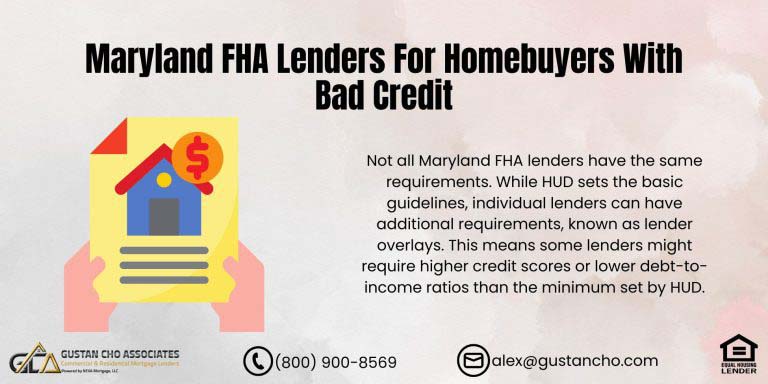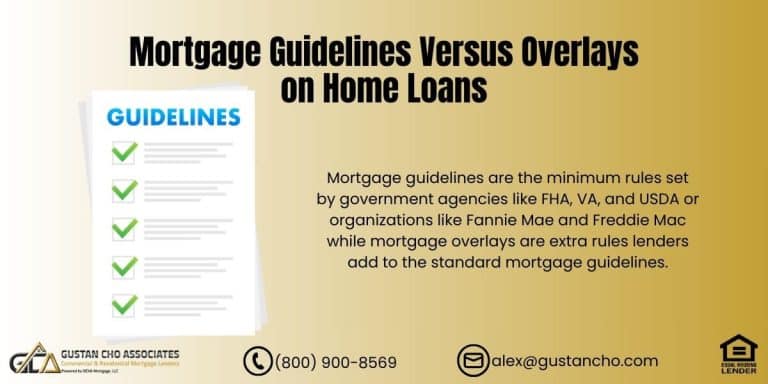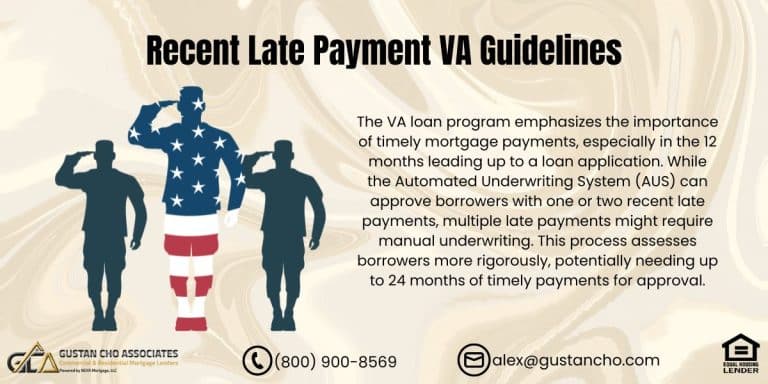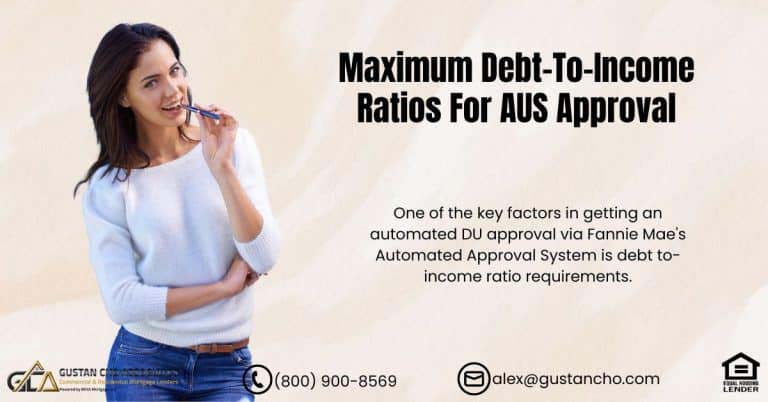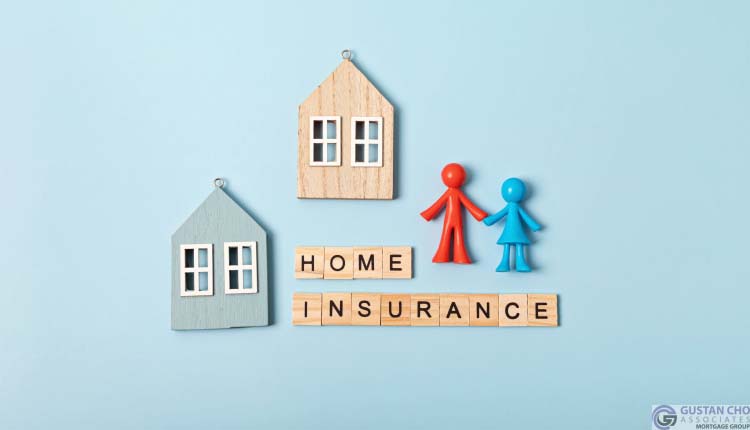This guide covers getting a home loan approved after denied by a bank for your mortgage. There should be no reason why mortgage borrowers to be denied after getting pre-approved. The only reason why a pre-approved borrower gets denied for a mortgage loan after pre-approval is because they were not properly qualified in the first place. Most Lenders have lender overlays.
What overlays are is mortgage guidelines that are on top of the minimum lending guidelines set by FHA, VA, USDA, Fannie Mae, and Freddie Mac.
Most loan officers will run a mortgage applicant through Fannie Mae or Freddie Mac Automated Underwriting System (AUS). An approve/eligible per AUS is pretty much a done deal ONLY with lenders with no lender overlays. Many loan officers make mistakes in issuing pre-approval letters once they get an approve/eligible per AUS without checking with their company’s lender overlays. For example, HUD guidelines on collection and charge-off accounts state that borrowers do have to pay off outstanding collections and charge-off accounts.
Can I Get a Mortgage Approval With Outstanding Collection Accounts
Many lenders will require that any collections over $7,000 be paid off as part of their overlays on collection accounts. Situations like these are the main reasons for last-minute mortgage loan denials. In this article, we will discuss and cover getting Denied By A Bank For Your Mortgage And Options For Borrowers.
Banks Versus Mortgage Bankers and Correspondent Lenders
Most home buyers go to their local bank when trying to get qualified for a mortgage. Home Buyers feel comfortable with their bank where they normally have their checking or savings account because they know most of the bank employees. Unfortunately, most banks have tougher lending requirements than mortgage bankers due to overlays for residential purchase or refinance mortgage loans. Homebuyers normally do not think of a mortgage banker or broker. However, banks have stricter mortgage guidelines than mortgage bankers. Borrowers who got denied by a bank for your mortgage, there are many other options.
Denied By a Bank? You Still Have Options
Home loan approval after denied by a bank for your mortgage is possibleNot All Lenders Have The Same Mortgage Guidelines on Government and Conventional Loans
Being denied a mortgage by one bank does not necessarily mean another lender won’t approve you. However, it’s important to understand the reasons behind the denial and take steps to improve your chances of approval. Here are some common reasons for mortgage denial and steps you can take:
Not All Lenders Treat Credit Issues The Same
If you were denied a mortgage loan due to poor credit or low credit scores, improve your credit by paying down debts, disputing errors, and maintaining a good payment history. Seek advice from multiple mortgage lenders because no two lenders have the same guidelines on government and conventional loans. Most lenders have lender overlays on credit and income requirements. Lender overlays are higher lending requirements than HUD, VA, USDA, Fannie Mae, and Freddie Mac.
Insufficient Income or Employment History
If your income was deemed insufficient or your employment history was too short, consider increasing your income sources or staying in your current job longer to establish stability. Provide additional documentation to support your income, such as tax returns, bank statements, or employer letters.
Debt-to-Income Ratio Overlays by Lenders
If your debt levels are too high compared to your income, work on paying down existing debts or consider a less expensive property to lower your housing costs. Explain any extenuating circumstances that contribute to your high debt load.
Denied By a Bank For Your Mortgage For Insufficient Down Payment or Assets
If you lack the required down payment or cash reserves, explore options for gift funds from family members or down payment assistance programs. Increase your savings or consider a lower-priced property to meet the down payment requirements.
Denied By a Bank For Your Mortgage Due to Property Issues
If the property you want to purchase does not meet the lender’s guidelines, consider looking for a different property or addressing any issues identified in the appraisal or inspection.
Shop Around with Multiple Lenders
Lenders have varying credit score requirements, debt-to-income ratio limits, and underwriting guidelines. Provide complete and accurate documentation to support your loan application. Consider working with a mortgage broker who can shop your loan scenario with multiple lenders. It’s essential to communicate openly with lenders, understand the reasons for denial, and take steps to address any issues or concerns they have raised. With patience, persistence, and a willingness to improve your financial profile, you may increase your chances of securing mortgage approval from another lender.
Why Banks Have Lender Overlays
Most banks have tougher lender overlays than mortgage bankers or correspondent lenders. The majority of mortgage companies require a minimum credit score of 640 FICO on FHA borrowers. This holds true even though FHA minimum credit score requirements are 580. Most lenders and banks will not accept outstanding collections and charge-offs.
Many banks will require no outstanding collections or charge-off accounts even though HUD guidelines on collections and charge-off accounts state that borrowers do not have to pay outstanding collections and charge offs to qualify for FHA loans.
Late payments and overdrafts are not permitted by most banks. Most banks have lender overlays on debt to income ratios capped at 45% to 50% when HUD guidelines allow up to 56.9%. Banks also might require reserves and do not view past bad credit favorably. The great benefits with banks are that they are exempt from licensing requirements because of their FDIC status so they can originate and fund loans in all 50 states.
Banks Versus Mortgage Companies
In general, banks have higher mortgage rates than mortgage bankers or brokers. The reason that most banks have higher interest rates on mortgage loans is that they have higher overhead. Bankers are exempt in disclosing their mortgage yield spread premium and are exempt from licensing. Loan Officers employed by FDIC Banks do not need to get licensed in states and are exempt from licensing due to FDIC. Any FDIC-insured banker does not need to be a licensed mortgage loan originator and is exempt from NMLS licensing requirements. They can originate mortgage loans in all 50 states.
Turn a Mortgage Denial Into an Approval Plan
Get a clear roadmap to home loan approval after denied by a bank for your mortgageApplying For a Home Loan With a Bank vs Mortgage Broker After Denied By a Bank For Your Mortgage
A mortgage banker is a mortgage company that funds the mortgage loans they originate. Mortgage Bankers will use their warehouse line of credit to fund mortgage loans and re-sell the loans after it closes on the secondary market. A mortgage banker can also be a mortgage broker.
A mortgage banker might want to broker mortgage loans that they cannot fund due to their mortgage underwriting guidelines and overlays. A mortgage broker is a middle man between a borrower and a lender.
Mortgage Brokers have lending relationships with wholesale lenders. A mortgage broker can shop mortgage loans to get the best possible deal for borrowers in terms of the best terms of the loan and rates. A mortgage broker gets compensated by the lender. The compensation paid to the mortgage broker is reflected in the mortgage rates charged to the borrower.
Applying For a Home Loan After Denied By a Bank For Your Mortgage
Borrowers who are planning on getting a mortgage loan from a bank, shop at various different banks because every bank has different mortgage lending guidelines and mortgage rates. Borrowers who get denied by a bank they should find out why the reason for denial is. They might want to consult with a mortgage broker or mortgage banker.
For borrowers who have problem credit or prior bad credit or high debt to income ratio, a mortgage broker will probably be the best fit.
There are lenders who can get mortgage loans for borrowers with FICO credit scores as low as 500 and debt to income ratios as high as 56.9%. Gustan Cho Associates has no lender overlays on government and conventional loans. Gustan Cho Associates can get mortgage loan approvals with open collections, judgments, and tax liens.
Getting Mortgage Approval With Credit Unions
For those borrowers who are members of credit unions, they might want to consult with their credit union mortgage lending department and see what their credit union has to offer. Credit unions normally offer great mortgage rates and terms to their members. However, they might have credit overlays and might want lower debt-to-income ratios. Mortgage borrowers who got denied by a bank for their mortgage have options. There are have mortgage bankers, mortgage brokers, and credit unions. Borrowers have got denied by a bank for your mortgage and have questions, please contact us at 800-900-8569 or text us for a faster response. Or email us at gcho@gustancho.com.
- Related> Denied By Your Bank For A Home Loan?
- Related> Denied By Bank?
- Related> Did You Get Denied For Mortgage By Your Bank?






